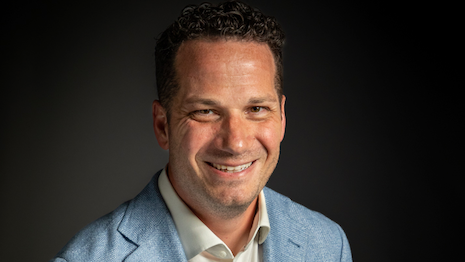By Christian Piller
While Amazon’s $10 offer to pick up purchases will reduce shipping costs, it is not the primary reason for the offer.
Amazon is seeking to increase foot traffic in its stores and gather customer behavior data for strategic planning and network design.
In addition, this is likely a test rather than a policy given that Amazon does not know which customers will accept the offer and will need to understand the impact on delivery density, returns and the environment.
Store of knowledge
Amazon accounts for 36.9 percent of all online sales but ecommerce only represents 20 percent of all retails sales in the United States, so, by increasing its store presence, Amazon can increase revenue.
Through the $10 offer, Amazon will push customers to stores, where 80 percent of retail sales happen, and can start selling more household consumables and replenishable where competitors such as Target and Walmart have a dominant position.
Pollen’s own data shows that curbside pickup as an additional buy-rate of up to 45 percent, meaning customers are already in buy-mode when they arrive at the store and walk into the store to buy additional items that were not part of their curbside pickup.
Target has been adding additional services to their already successful curbside pickup including returns and even Starbucks in some locations – that is quite the “Target run.”
As Amazon gains data on the $10 offer, it will understand which customers are more likely to accept the offer, when and where, and understand which products customers are willing to pick up versus those products that customers still choose to have delivered.
By understanding the conditions for acceptance, Amazon will be able to tailor the offering as needed to encourage desired customer behavior.
This data will be incorporated into its future strategic planning and network design as Amazon will know where it needs to build additional stores, fulfillment centers, delivery stations, know which items needed to be stocked in each location, which services to offer in stores, and understand how this offer affects delivery density and route optimization.
Will it deliver?
Amazon can update its returns process by bringing more customers to its own stores versus sending customers to other retailers or carrier locations which will further drive in-store buy rates. This will improve the returns process, especially when combined with in-store pickups.
There is still an opportunity to revolutionize returns from a process to an experience with box-less, label-less pickups from customers’ doorsteps when those customers are not going to a store for pickups. Retailers must offer experience optionality from buying to returns.
The final mile is expensive and difficult to optimize.
In many ways, faster delivery is its own worst enemy as faster delivery drives sales but sales drives additional delivery cost and complexity.
Amazon’s $10 offer will provide Amazon insights into when, where and how to mitigate this cycle as changes in customer behavior will change delivery density and route optimization. This may have unintended consequences as too many customers randomly accepting the offer may cost Amazon more than $10 each with less dense, less optimized routes.
Amazon will likely contemplate the environmental impact of all these changes – from increased store footprint to more customers driving inefficient, point-to-point miles and potentially less optimized delivery routes. Amazon has a stated Net Zero goal by 2040.
AMAZON, TARGET AND Walmart are involved in an interesting strategy intersection with delivery capabilities and store presence that will continue to benefit customers in the short-term.
The challenge, however, is if Amazon, Target and Walmart and other retailers continue to build their own capabilities and infrastructure without overlying existing supply chain infrastructure, customers will have a confusing array of non-interoperable apps and experiences.
Christian Piller is cofounder and chief commercial officer of Pollen Returns, Atlanta. Reach him at cpiller@pollenreturns.com.
{"ct":"UvHyyb+7ZAhDq6\/Si6AGVmKzDGhZ7pErNDiQln959lokCSwEdwe01v65Y1ThdV\/HvqS4Ul\/S\/HjvuY8MUFFrEbstUl24SnKTlPWby\/9WUEpomSG9whe3LDRz3AM7lg\/AmlgTfAlX9RhqStv9Rd48HYqaj1o\/KvTghPwfoIZWwLL6bCDud64ZPyT36IDlPJeNNJT0JbVEgbtR2ylcgbGXUfiU5sxDVRRWpHUlJ0pdl6LVSn0hSYps3yker0sXMqFOAgV6k1TPnFqUj3+BONaaBlW1PZ832PNSAOyK9SFdAjU+HfuyYNO0LtSJuR3aquGeWAaQKh31apQZWtG446M8DkQfcQTTchG6JhOPnmESTL89lAQFxG7\/xIIdWt12lLhSirhL1lpTMxU4ncmQ2YlEEW\/K3YBsKE9zuC+zrt4gLKp+Bd5WyBo2qHoxG8XlIahfJIGrpryVljGN388ADHYlDsVYa0JKNpdkpUBoms54ZN\/4J6BkVp\/GokEC7motwfwyg0k2uCE3fkJTbGD9u9Ynn\/oGnVtL29+cf1S+R79\/CCEoPay6DCnp6xZYGtqFkAEZNdJtNMdhFiRUvttt\/Q\/EO\/rLkVJkol53BwKfXcuKiuVWQfGjVP\/2+lktSyUJfKtSJ6hc61ydiWzgJ4VFpQhQdAAIwansnRtttfNfgA0bEJyaM56dFHrqrj6trSbyQOI8QAQOTnxbJ58SvC8H48vpqKrvhHaD+F\/gRSPa27AR6hOJvzOi6p6cClFovAEr0OKSwcYjMpPCrSpBCPf764O7mcf9skFAx3zEtLCAFn2UK7RnthJ2J7YnIsXviISgpPA2Ta3o5McphX+J29LNsFPDGPXT+9oTvYpv++a9UoQBFxg8ePv1wimP5wSKI\/nAqJ6C7Q8\/VZK2FUBZki01vamIAbaFO\/p2NhsHLgrHhjVd8cNwl\/1woQ1lPoMSC860cUfdGXw+spNiX\/\/Hw3j4C0ONnXcrtg4kvdTAe3cKXIY+a2CwDj0x7tC9EkVRUB9LUKqDlZ+au1ZYXkczP6i26iTglUheCL2iECp51WGbrHjCa5HbisV8hTC4MEUmB\/plY5wHVskUb9xfiwRxVnS1hK4E09Uvjnlw1Rwu6omLIAMcECRIbrCrnkCcmCoeHTXJlapj3RY9PKL8hpqI5HXSmssAH6Lk87y4Wan\/VHD5WUjw1CR2TxdRIz5l9jtF7MBYGD80E4UTx79b5KQHacPeRpMDWx\/0eMi7AXuPuF7JXxauGKUj\/HHtHEEr5bCoceJI8U4Bi6C0bYKBUb3DO8Cc1ZDQD4d+VOrAJ26JF9\/qpCj2hNOVbtq8UQixsOVlq9e98i+O98E8LnNXExQ\/bqskpwsLiBkjhvjolNYa\/dbbNeN1ABGxE4gDC\/GdDTZK3BmqeQmRuH7UL6d3PWe6ILmP4QOVNXCCKlXfg2ccMQaZXZ0YVtPH9zu\/qSzfzenV\/Y+etEnqW\/oLCVPIICbJjcSW5\/6lPp\/tdJ4c0KExGYcbrFyJRXxKvX1XJ4dOp1uLFgH35+0i7nAeO47sfb1XUmVA3iu\/zyfAKwR8aTVXId8QA+8BsHRC85jnhIR+QWODwQneFco71ihXqBCn6Dv9D1Q2HRJ3CA6jmC1vLGQrikmlc8WYiuJMsABYxa6534OyCTKxVsf1KXNObnTSOfGX\/fTWZrkSEPNzIm\/QwrFdzVX5Af9kpw1749FIYuF09QULoVAEWM1QXh3Xxtao9QTEd2IYdkUoUCsXjHybIlRABD2u6eB6onLQwNMaRgGDqZB9tLxPIazC92WTe7eA6pDeOvVtWD0\/mOb09f7fF2MDm95wDR+bBDk0kbqSUHDh\/EZcQ0IrPaBf9TgGB6vMtfZkQU0PIXYhxtEHKpfALjQzD80zMlN1iqxEGddzck54cXKHpw1BvRXcP8+autawYEqsSLx6T4t8tbp5ur8NCYHTDrP5iYbFJ5YO7OqQw9e+MWBUcA2Hx2Lsi16kzIqJnoqcjIscB9TYwoMi29DfHIbZ8oi+e88NKow24xG41aFVltIKJLVpk6qzHFbSLW7sSDFVTRVxJ6fyN2uf7wePtHv\/i8aq50fUoS8eFUtIDfkhsc2+eJ1xWQMii+Mp+BC8X1uDt3K\/OWPVmzFH9AFvUBVZ4UbF6iBfTeiBhvMAbRm9+630E\/pf2WENic+dNP3BcJke4ulrgpEkIU5iEtnTh1Rm+8L61dYMuIFXOQqjyPsVl+ZII8TzPKRwEaHfX71UvBahlQs8DCqkpkPXmjhrBuTDbbMirNJmJYBwhDsPGAa3BVEkbRYtm\/o9fuf9Zer6GIOZGU3cKL9\/Aqdp+\/q7f1q4aeKHzfX9TQjYfnx\/QfURBXR7+I23c2OtPEJuXzt43RJixHPBxUrRGrO1bO67aDMziIYVchQaRnXFHAEHl6X2VHJ\/m7G+i+VKltSSNYsaOgkFYErGhbHYtLqZW3mBMykuqCJkwbfzLvQuhRikYd3PozTV9Bhs\/S2Rts182t0hxLvefx8DJHM2\/jd+c+KCVRPjysXg7GCfimEIrOMr8qg7pdcirrBvomSLL1bMS6zB0+qGsVR29R\/idzKuNQp7\/8LV7ooTOGfM8gdbQCwH9tNj5qAC03Aa+tsjCSDw4yVx9imGFB3Jedil5Oy3UIJg+Ze\/yUHsZoBmzN2bvYPWeHl918t12X\/mh8hA9eBRxAZ5O\/g3jsw6vNibFkWDLJzOoQN1CpbgtNGoMWj2Qcm228wZ6KNMkh\/DUKaJs+LFkneOq9ukVMcA\/JHkbm4Cq3\/s3diDjamWMPpiiPwUHc9ZGPpt9tdM0C8xhu\/IYMEvbklzuJ8VDTUhl+HugxRbO744RacFeJ4RYe6MeXY+LC9qMo1qpsJ1\/xGu\/sDJsau+Vf89KG1NX25dH8XcgI2Rks\/ejBTNjFxsfqFQXQCIk1\/XPP2nKBfzv7C6aUDCe43c2uR9bweuRrJdgc4Vrwbyd2adHGDhbWdn4TpoIJ9Lt\/KQ8ooEP8tCCIMzRhFBVa+KcwjwTiajtTd1LyIP3hwOg9wxKhxYQbyNui0FNywnkk8g28b\/DOHiUuiK\/yGK5VgYXv8THPYb0lYu3+Kh+l8QepFHvDGrqQgTJN7uPZ6B0yGRF\/+IAb0RUWibl9Bo5ua8tAtUF\/MBB2J\/JY0GH9C6LgyzY3xDJ5Q+TfgxTa56vpwUTKb1U9wmOZbofJk0sqbPTl\/WDFcJ3EbChFN3cTtKDutYTZp\/MA6Vtkuf4D2i9UTmNjgbdKSanhAmXLS4\/dKjy4c3sbAeorWRR\/DoAjrNzGZ1Zq6fzL7ig4MLltIKSxgTf9tVnAKOwKqr4QuKaFUllBwOhPAuCLoXbBDpRe5J8fCcAu8DXU3ufEsrnk64EdDlkMUtlacLLzhGVsp\/TBtjJhhxlLrapHezzVh70Te+1x62RiqrHg5db5rDNQM9rNWRecG5+9ZITW4ItwZOes\/rqVjO\/j1Si0p8sRxs6a2oKrinVpGB4vmXH3gxSmEuqDJ4dmtvwZomIttLg89K1A8X1Yflp92kI9Uk4HXr5UGzUWBXQxlxa8BZeiEVuhAD0\/7io76sk7o5MQsDgxk1xRci6H9wwtvdQfjaEIVLL59fe9pJa8E8O8itGkcYR6Py\/+oT+BgISgS2++dhhIQh5PKqIHG\/Nufj9enMwmK2nI83cSNFPCr0t+SwuMSC6CdRnPMZHiFQ5mtATzMIegKMyX8oTlwcWJSEN6sGlG\/tZCDbjY6jSxYEQmURv+XWfnbjxWqt5bjNtMl+FF+zE+dVnECVWtLRae1qLJvO5QGBdX0KRIOEeHl+CNer6EU5p3q\/CZbxqMQFSKOmFOkFFzTndGoowDWLld5ZNvgT4FaDvB2fH4Ye2Up9QfB+ad+THQd4tyHmZo3gEWdNjVjd4llrIJLKBVd4wTm3qKfiqNfBsq5mDmurjL7oXRHII8n1AggX24tXVVlYL205K1EjPkx4F9ZPXp2A57I73DPtVZCAcZ30j1DoBJ7X3559gE\/0KXpMau2uZ31gf1UNeAoww5YJCvmAUkgS9cjb2ToiTZfARvgPKHXjBolnyiXXH2XRgQsXxEXoRTGuaWAZdFBqcAFqhyF7MKWMNtzu9fSrkZ6SnPuRUPJzTyLyE0isU1vZtMFsIdcWm\/vBchBbeP9M6aaxyR9rdzFyGIp4VFnvrXemhlH7F1TGD\/GJQL4eUIOCIaseIbiR+AzHEutpzFXSqIAc9IiMiUZl\/v4YYPaNbHhTtqGiDlIY04efXtdIsuYZOlH\/lMAgUke55sDUrkMvj+alodN8+dpCE3P2rG7zGRynVwq8nTIWsFLrEx8y0OIYzpcDo0v8JvGV343esJ8Q34HoQ9724K0ADThriBvND3lPP2MKlSFPOCpf1p3QbfpU7Bc9EKyY4QiQDdRGBTr74kQ\/aU8DvjWJ8LcqrwmY5AQdbEd7WhmdHs6aqh4gb5vZzXGCKov0l7uRTQjzmm0X9ObMOh8iMJDhmTKXzmd4UM0kb\/OokZ4CkuM9zlr0GFohF6CRLkzuRNUUNyT9mjbYrSb4iusmC5gtYCwgMeSjI1HuIlEUWblymc8JYP0\/rYwt6jPuhvX\/iofCYv8HuLdpGqvvl4VrxzsihZXMoSlj2kDX9dd8vtpm5koSujknzz9QhNIjRksn7QAZXq6MyF1FfsV9BQby7vovtRvW8cgOQoYZV\/E9qIxjGb3W9OPGG7GDhwYwgTIl+YFhTqUmEH8Hl6c2F3j8bI2OwiQHq0t6ls+DIHPvW7WPCHbqhWHOFp9aE21wc+td6DDAnbSAS1SDvcQFykJ26uzDcfPl9jGUyxEG9sg3H14HE6t41Q92zZkampP4xLet03fBqXhPl3jBrZjRlkxBdvoeLKRK0sf+Z5vx1dTu1f3ZdW7F36mwndRhNMCuNYZDMTZKwtmyM9KvwHKAdn8nFNWUN9Ss4+fujEGmGxEXCcMbvFoHZ4StR0\/mjgkztHPuWBVW82hGQpEj7tHDS2osrBWGIh6fEO1phSRX8GOKpa6wqUfebs5dT45Ver6DdXe\/3Uw+XfbiqApw\/JnUxqIRV8FhRZ8ievoZ\/K7MTIztUxFzpYTi9j5+mLbPFCVK9gmVsoJ+Y8qJI5NzP\/LnvCSzjzt5ZWYVDdqFO7EJRPGYhH1NSexHxKD5O1BTt+v9BVpqKeH6awVVcqYhHdH+IHc7C8A\/umLIo94CHtl4hrym6rgt7XdF4YOjQOCGJlfJE5EgXQ7pDgSvREdl8p0m5hu3QtVePS\/gSWYh42vFazHSDfcWggKqT9bJtaOoDrDROOjQXCt7JxF5wV4C8vO2n+Ai\/LkC7BC8W0aQ2cJrcIsenEROibgsHDvagPibhcFj7GH4tLy2pQjAtzcsTsaOO39vyXvXMtbQVOkteLkyWjWdqr8\/Phk4k3PdcDd8x5UCSLXvMgE1IuOfwTAedUvxcR3uqX0f4ymAQ6RO1voV5WsnTZrnLeJJy7Yl6L9f2Qgn+xlv0C8XnJXDyTpWDnKsmU33GKOCord9gajgJyfIScs+SuFnU7x8q8i8IAQgBqLprgxFpsj48mnQslPAQYpzccZd2ti0x2XYtK7E\/0SowtopcGjue7qoucOuDRhJpMuZYvw40UYli4x7CtuyWT7sQEdWswoKLQM\/iSOzFGtTN7g6VxcSz\/EDCVN4n4K6Z11Kz709jt0nhc90SiIU1B0tXoLPBvBQlOc17GUCoSh17vxEXKlX574X871Zo+1JDwSF1jUIZ0SnqNTDO+cUdNlQXuy9Ft56UJx+ylMiTF2TRRG5fSWDBX5MpEt7Eso+z9IArHxyBap90COzi6tPEs7\/8gx3wKdEOyRKQNJq9GuqNKVmO2PKccLiY5hEu+gJObSxbbXvoA\/AVPRTqRGLXAGnmMybyTzMm8mfIwzKL6xqk39fWKx4\/OxzJJUNYC9OFbFfSRSmqDlL4e02aq5UgyMKypgGwSR5aCJyHR01bWI\/edbT3aL7lbsYJ9qeXWqg4rJyjqLy9rozgPXhiaPG8+j8qDi2OtbTxt2hfGeYOegfnPl7fbJPJcTOV0aY9dRof0hQjDoBUBy0+JnPK1uYhOLbD6D5YPELx+DZkOE9gYaCUBLNvkJD44PGeOqKF3Ke4s4dHJwqzfYrQabiSI4439bomzMCNwf50yHmcMfXqYJuQbxKWdrbQItB9wDVNKehY5GiIm6prl1BAr7xQ\/atQs7FoQtfpjBvIZHYuGpNCpebu8AXcvA\/KaS9WXtJsLlUcoeCI6ZvTnBitSGUFQFo+\/dqUFySNQOuCffjsRc4o5gqiDXueyIgptl2\/jvtLDjedcCVX5hdCx9tbnTe2596j8Usnv\/Z7GYO\/3w\/eM1f76PYVWN2fAiPkLto1itPOAo7HUgtWt1bvMl+UMC6cxohLPhvmgw9ZMWaLwt1UnJPr7adqLN2PaZGUNGuDyquPIjISAA3iT6COmRYBaUb2Sp+dYtdKmhNRMTXEOH1JdyVJtUjMA==","iv":"8e958aaedbdaaa2a19c1a5f776a3c526","s":"fd4caaf602000a46"}

 Christian Piller
Christian Piller